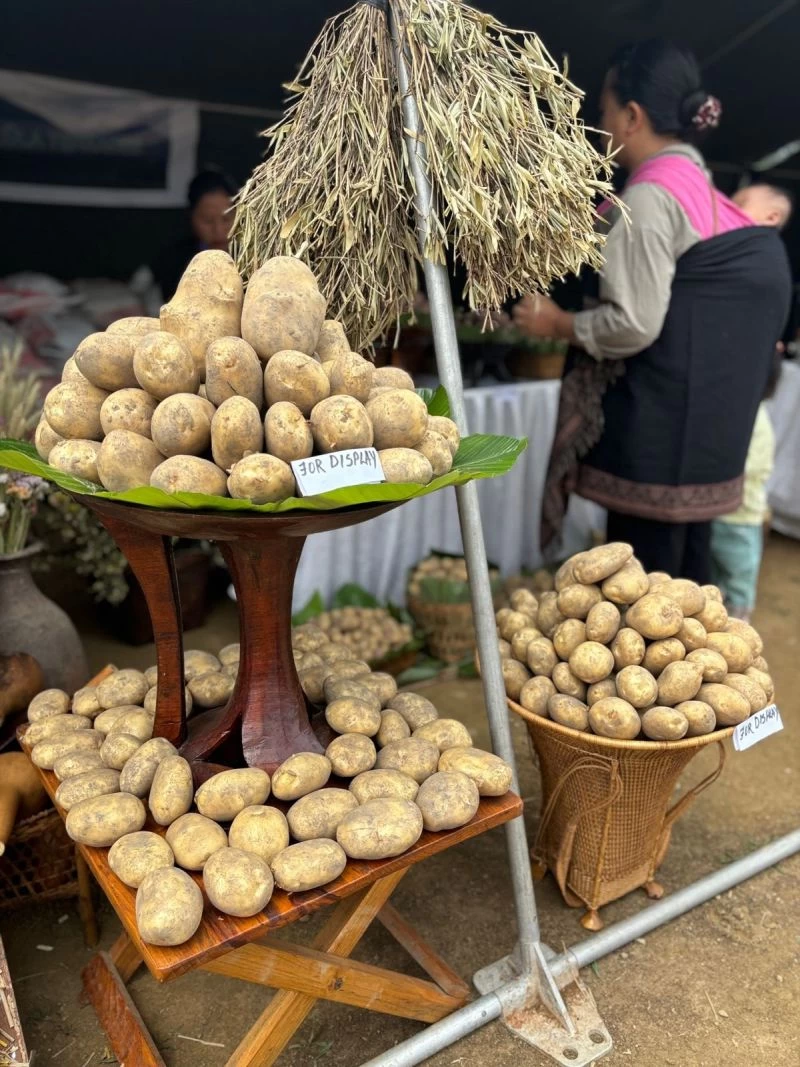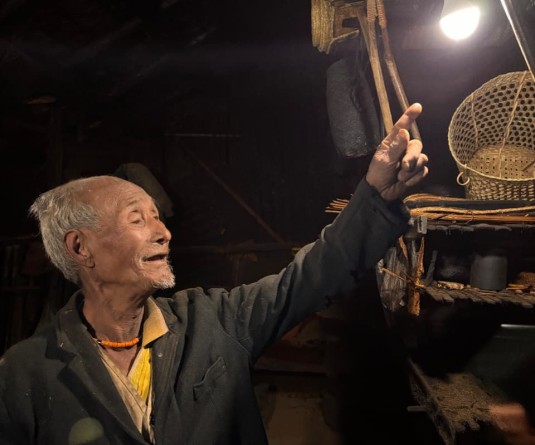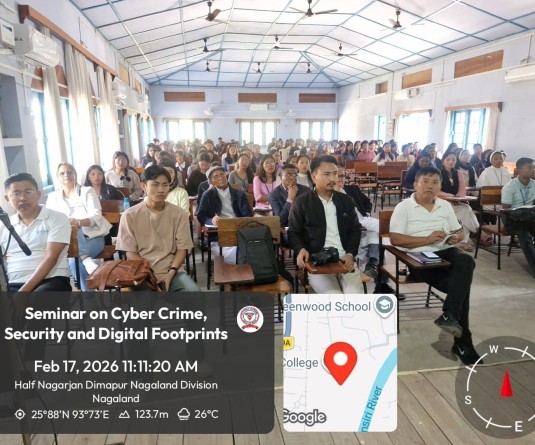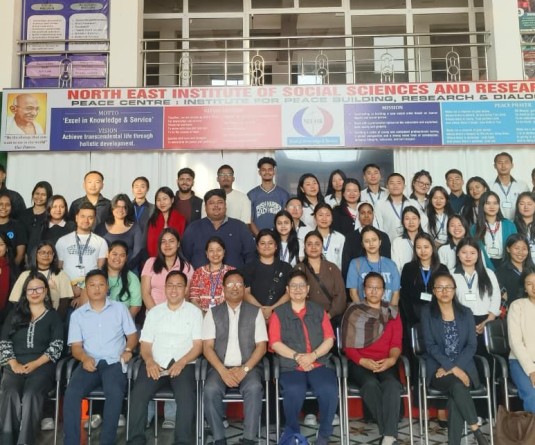The potatoes displayed during Nagaland Potato Festival were grown in the month of December and January and sowed before the paddy plantation started. (Photo Courtesy: X)

Morung Express news
Kohima | May 10
To promote and give organic potato cultivation a window of opportunity and recognition, a daylong Nagaland Potato Festival, a first of its kind in the State took place at Jakhama village ground under Kohima district on May 10. The potatoes that were displayed today were grown in the month of December and January and sowed before the paddy plantation started. The potato Festival saw around 3000 visitors and about 70 stalls were set up.
Commissioner of Police, Dimapur, Kevithuto Sophie opined that there was wide scope of farming for our people with bountiful provision of nature. He encouraged the younger generation to practice farming by inculpating best practices. For the educated unemployed, Sophie asked them to consider agro based farming for subsistence while highlighting that the government is there to assist with schemes and financial assistance. He encouraged them to explore the feasibility and possibilities of how agro based activities can sustain our living.

Sophie reminded the people in that area that they are blessed with bountiful area naturally, be it forest or water. In this regard, he encouraged them to go back to their roots ‘that is depending in Agro based lifestyle.’ Even with people who are into different jobs, he even encouraged not to stop practicing agriculture practices and keep the culture alive.
Dwelling into how he had heard of the history of potato cultivation in the region, Sophie said that although potato came from South American countries but for Jakhama area, it was the Nepali who bought potato in their village. He said as he grew up he saw that every household use to grow potato in their paddy field and harvest right before plantation of paddy fields.
He further hoped that this festival will open many eyes of the people in the area and start practising agriculture again.
Sophie also pointed out the danger of stones quarrying which had become rampant in the area endangering the river beds and forests and also encouraged Plantation of indigenous trees and preserved them.
Scientific methods of potato cultivation
Giving an introduction to scientific methods of potato cultivation, Dr N Sailo, Senior Scientist and head incharge, ICAR CPRI (RS) Shillong spoke about scientific cultivation of seed which is the main component of cultivating potato.
He said the same tuber that we keep on growing every year faces deterioration. As such, the same yield does not reach its capacity of the previous years, because the quality of the seeds has deteriorated. To have quality seeds, he said today there are cheap and efficient means of multiplication of seeds even if there are no accesses to breeder seed or other methods. Epical rooted cutting can be done by farmers.

Sailo informed that better seeds are required even for scientific method of cultivation where the yield can be doubled or tripled.
By choice or by default our potatoes are organic as we usually donot use any chemicals or any other fertilizers, he added. Calling to balance between traditional organic and scientific methods, he said it will in turn help farmers understand the mechanism and keep the cultivation prolonged.
He also added that storage of potato seeds is another important component of cultivation. Without proper storage, it would result into infestation, affecting the quality in the long run.
450 grams potato declared ‘biggest potato’
Oasis women agri-allied cooperative Society, Zhodi Colony presented a 450 grams potato and was declared biggest potato at the festival.
Dzükuo Radzüla Terrace presented the best stall while M/s Kelechünu Stall was awarded the best Potato stall.
In the indigenous competitions, Loneho Tase from Jakhama and Ruokuo Kense emerged winner and runners-up of the Catapult competition. Meanwhile, Kevideho Kirha was the youngest participant.
In Phieda competition played by men by throwing bamboo to a farthest distance, Mhashevikho Rhütso from Viswema Village was the winner. The runner up was Zayieho Kin, Viswema Village.
In Thulova competition which is played by girls or womenfolk barefoot with a traditional dice, Zanuo Krotho from Kigwema Village was the winner and Toho group from Viswema Village was the runners up.
The day long mega event saw a host of events including sale and display of Potato and other organic produces rare and unique of various regions of the state, competition, traditional games and music extravaganza.
Prizes were power fillers, grass cutters and other modern agriculture machineries which was sponsored by partners. The events was powered by Department of Agriculture, Government of Nagaland and supported by The Green Caravan, Community Seed bank, Jakhama, Farm Craft enterprises and other partners.
Earlier, District Agri Officer (DAO), Kohima Kekhrieletuo Yhome gave the welcome address.






